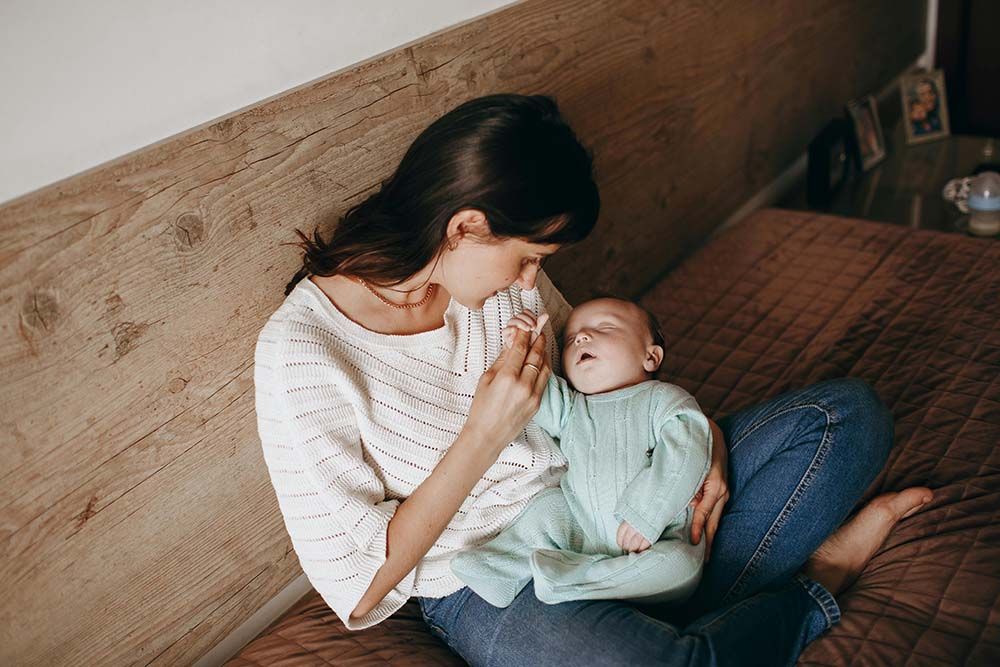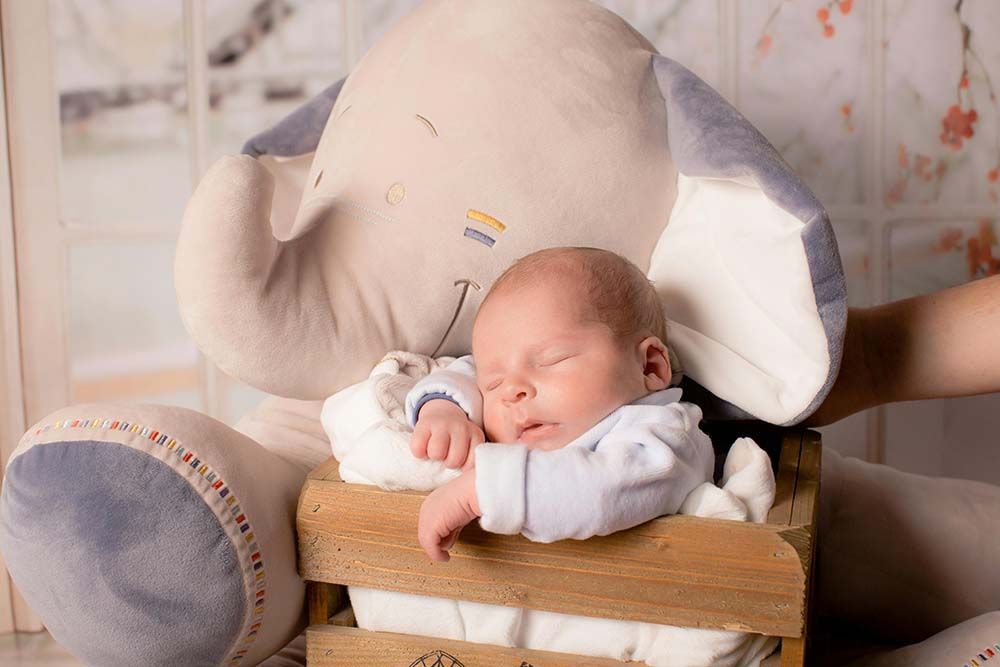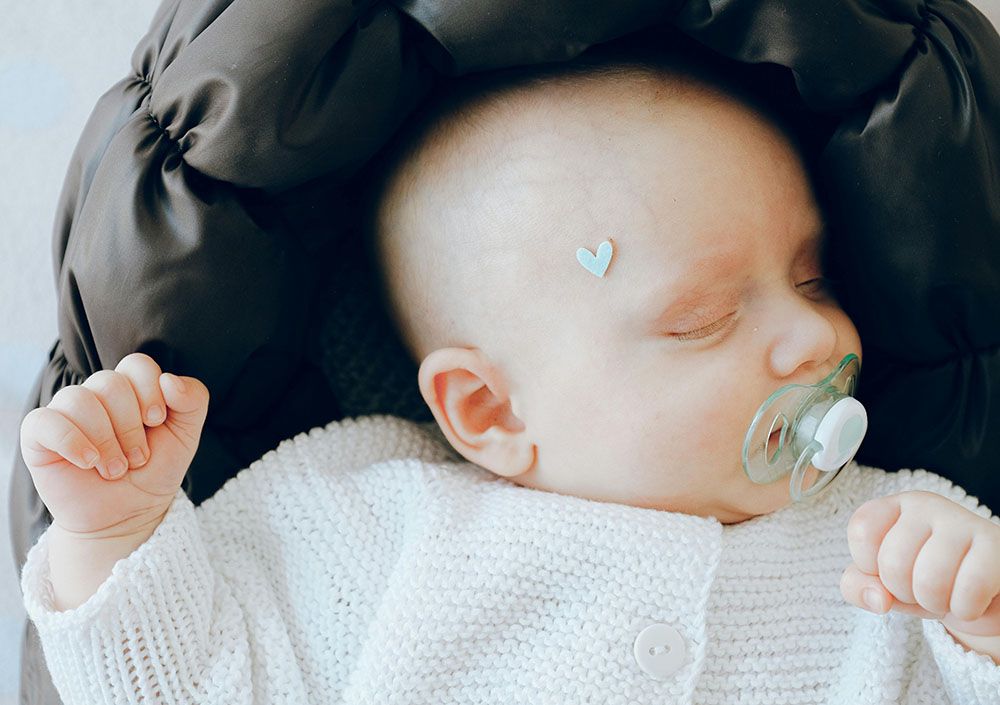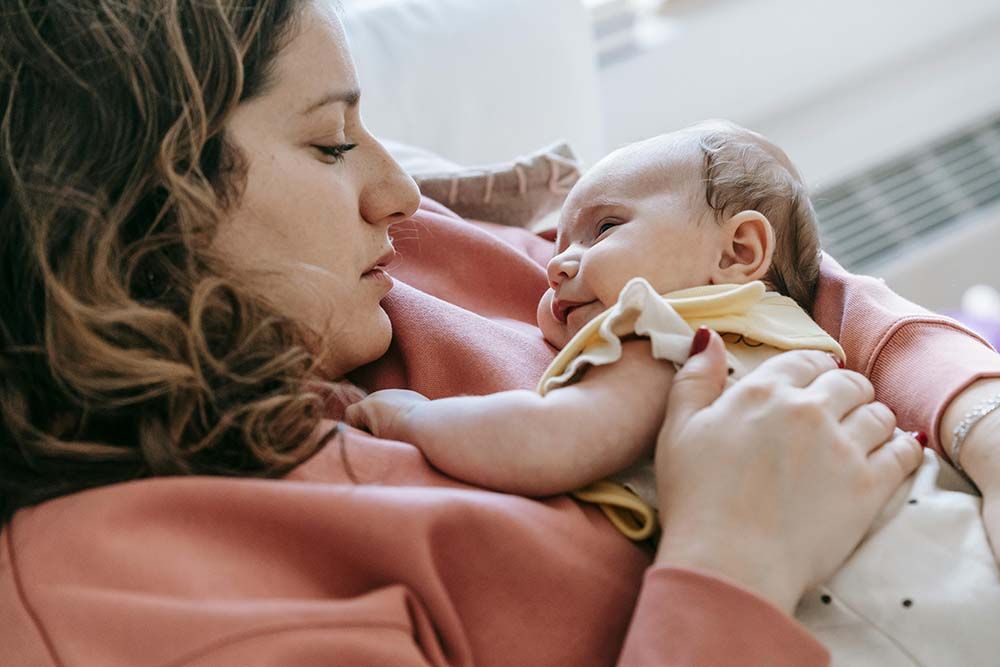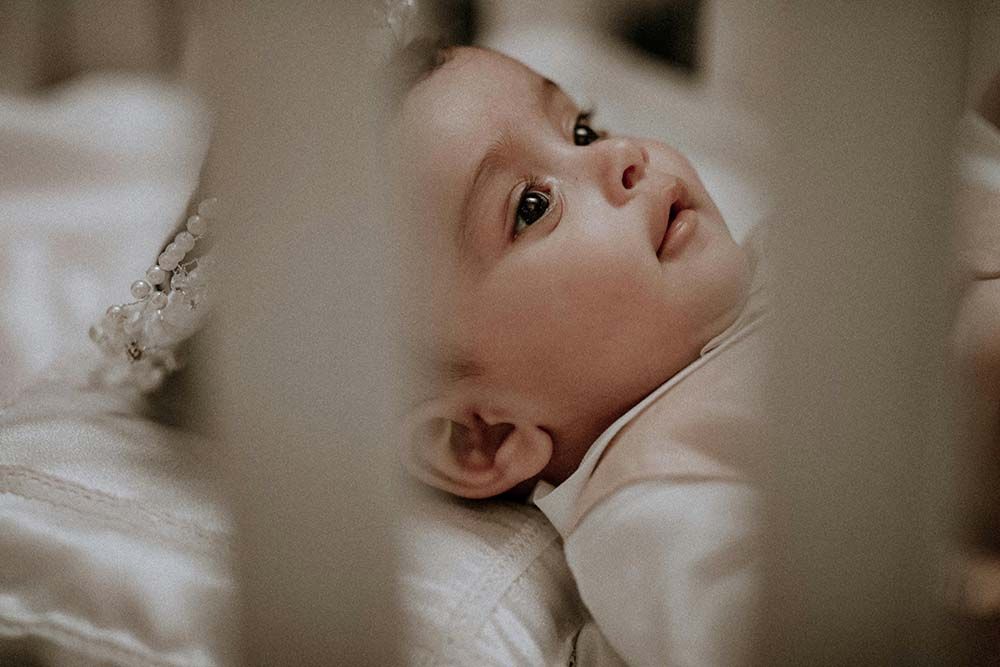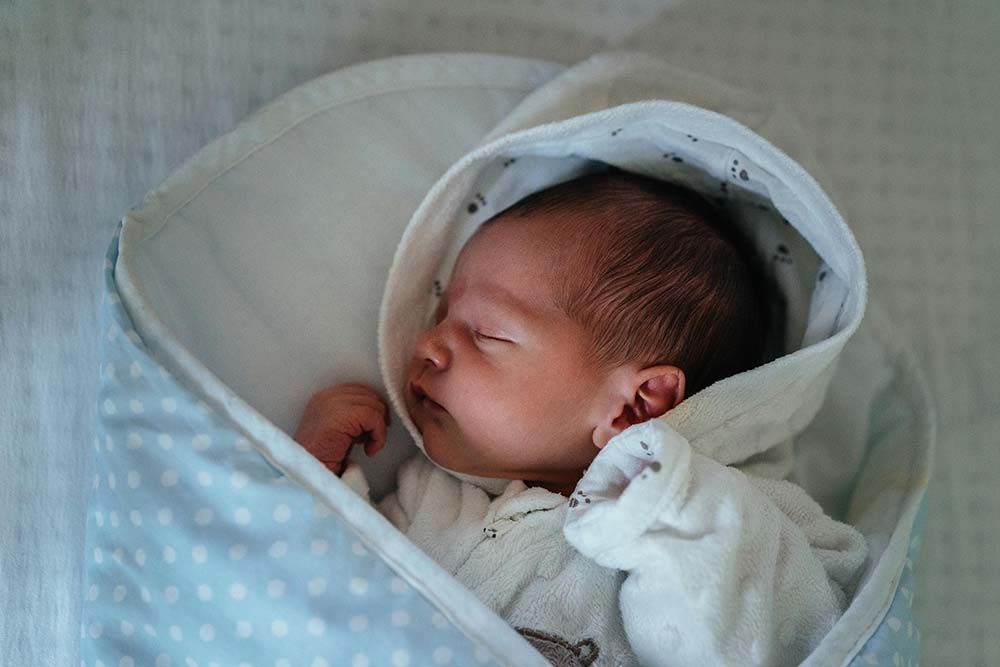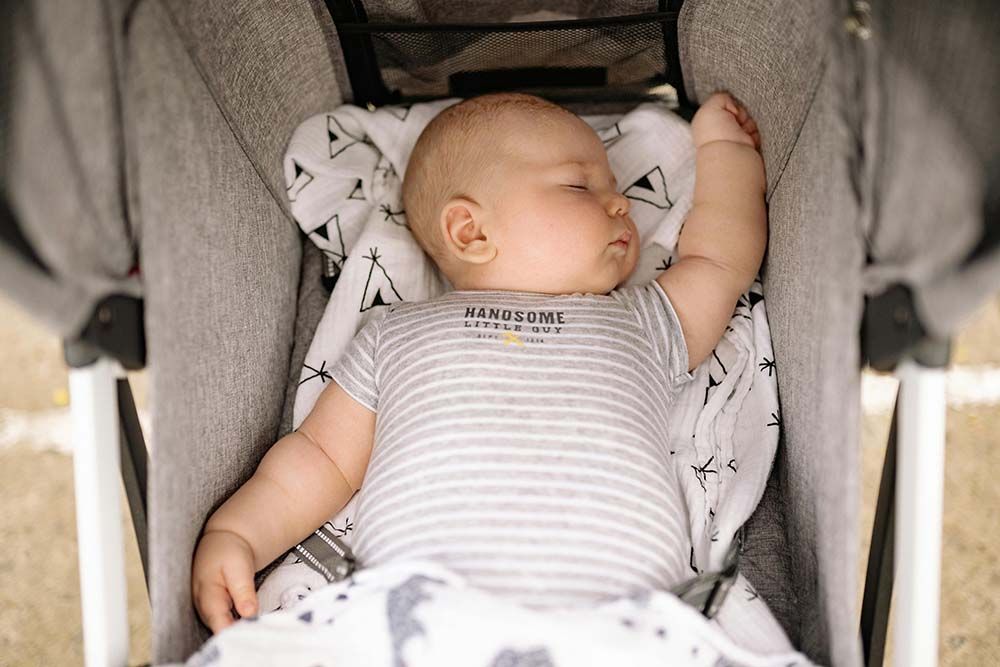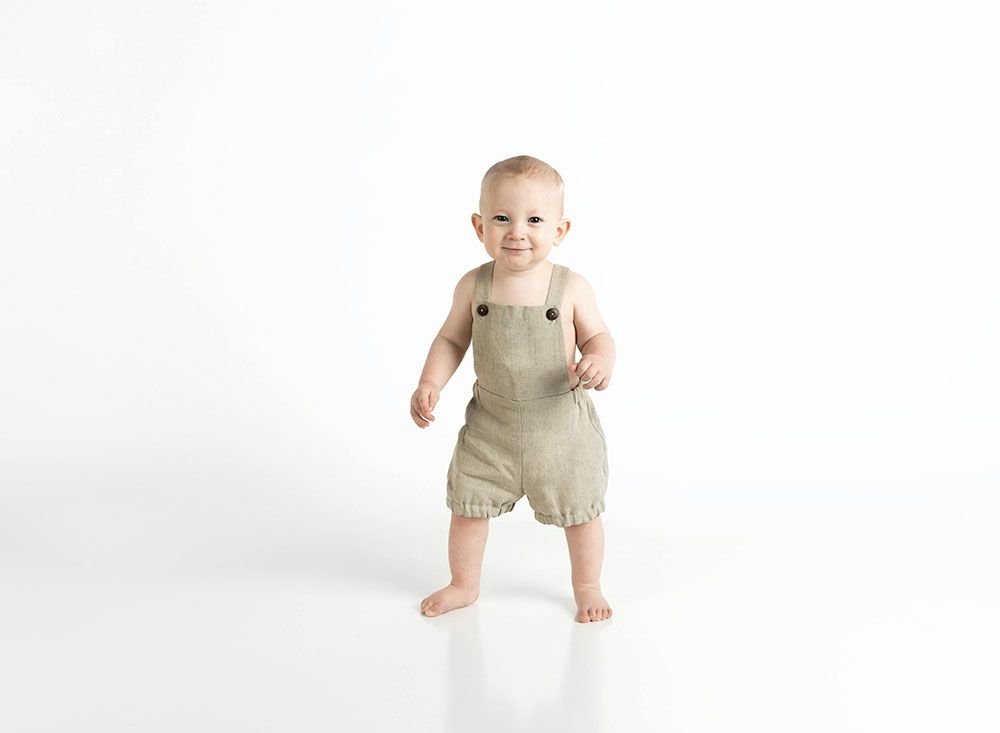

When your little ones reach 9 weeks, they are in a stage of rapid growth and development. They become more and more active, and even can make simple response towards your interaction. At the same time, their sleep patterns are gradually stabilizing. Here, to help new parents better take care of their babies, this article will share you with a typical sample for 9 week old sleep schedule and some related questions, helping more people arrange a reasonable schedule for their baby.
IN THIS ARTICLE
What are Developmental Milestones for 9-week-old Babies?
What are Wake Windows for a 9 Week Old?
A Typical Sample for 9 Week Old Sleep Schedule
How Much Total Sleep Should a 9-week-old Have?
How Long Should a 9 Week Old Nap?
How Many Naps are Expected for a 9 Week Old?
Should I Wake My Baby from a Long Nap?
When is Bedtime for a 9 Week Old?
What to Do if my 9-week-old Baby Keeps Waking up at Night?
Can I Sleep Train my 9-week-old Baby?
Sleep Tips for 9-week-old Babies
What are Developmental Milestones for 9-week-old Babies?
A 9-week-old baby will have some important milestones in their growth and development. Here are some common milestones:
Social interaction: Babies begin to engage in simple interactions with people, displaying social smiles towards familiar people. And they can express their needs through different cries, such as hunger, drowsiness, or discomfort.
Limb control: Baby's hand and foot movements will be more coordinated, and they may try to grip objects or tap toys with their hands.
Visual development: Baby's vision is improving, allowing them to better focus on objects, especially at a distance of about 30 centimeters, and track moving objects with their eyes. Additionally, they show great interest in colorful colors.
Auditory response: Babies may have stronger reactions to surrounding sounds and may turn their heads to search for the source of the sound. Additionally, they may begin to recognize familiar sounds and respond to them with smile or sounds.
Language: Babies may begin to show some simple sounds, such as gurgling or whimpering, which is a preliminary manifestation of language development.
Sports ability: Some babies may start to try to turn over or support their bodies in the abdomen.
What are Wake Windows for a 9 Week Old?
The typical wake window for a 9-week-old baby is between 45 minutes and 1 hour. This wake window refers to the time when babies are awake between sleep, during which they can feed, play, and interact.
Each baby's needs may vary slightly, and some babies may require shorter or longer wake-up times. Parents can observe their baby's signals, such as yawning in the eyes, becoming irritable or restless, which are signs that suggest the baby may need to fall asleep again. Making sure to start soothing babies to sleep before they feel tired can help them establish healthy sleep habits.
A Typical Sample Sleep Schedule for a 9-Week-old Baby
Here is a typical 9 week old sleep schedule for your checking:
6: 30 AM: Wake up and Feeding
7: 30 AM: Nap 1
9:00 AM: Feeding
10: 30 AM: Nap 2
12: 00 AM: Wake, Feeding and Activities
1: 30 PM: Nap 3
3: 00 PM: Feeding
4: 30 PM: Nap 4
6: 00 PM: Feeding and activities
7: 30 PM: Bedtime routine
8: 00 PM: Feeding
8: 30 PM: Bedtime
It should be noted that each baby's sleep needs and patterns are different, and this schedule is only for reference. In the actual process of taking care of a baby, you need to closely observe the baby's sleep signals and habits, and gradually explore the most suitable sleep schedule for the baby. At the same time, a baby's sleep condition may be affected by various factors such as growth and development, physical discomfort, environmental changes, etc. Therefore, patience and flexibility should be maintained, and adjustments should be made according to the baby's actual situation.
How Much Total Sleep Should a 9-week-old Have?
A 9-week-old baby usually needs 14 to 17 hours of sleep per day. These sleep times are usually divided into daytime and nighttime sleep time. Some babies may need more sleep, while others may require slightly less sleep. This may be related to their physiological state. For example, some babies grow faster and need more rest to support their growth and development, who may sleep for about 17 hours a day. And some babies may be more active, actively exploring their surroundings. Even with relatively little sleep, they can still maintain a good mental state when awake. Due to the differences in the needs of each baby, adjustments should be made based on their condition and requirements. Ensuring that your babies rest in a quiet and comfortable environment is beneficial for their healthy growth.
How Long Should a 9 Week Old Nap?
Generally speaking, the total duration of a 9-week-old baby's nap in a day is about 4-6 hours. The duration of each nap can be different, usually between 30 minutes and 2 hours. For example, some babies may have a longer nap time for the first time, up to 1.5-2 hours, which may be due to fatigue after waking up and engaging in activities in the morning. And the later nap times may be relatively shorter, about 30 minutes to 1 hour. However, this is only a rough range. Each baby has their own sleeping habits and rhythm, and they may have a slightly shorter or longer total nap time on their own pace.
How Many Naps are Expected for a 9 Week Old?
It is ideally for 9-week-old babies to take 3-4 naps per day. At this time, babies are too young to stay awake as long as adults. Instead, they tend to have a shorter sleep cycle. Their brains and bodies are still in a rapid development stage, and frequent napping can provide babies with sufficient rest and meet their growth and development needs.
Should I Wake My Baby from a Long Nap?
For 9-week-old babies, taking a long nap is usually normal because this age group requires a lot of sleep to support their growth and development. However, in the following two situations, waking up the baby can be considered:
- Approach feeding time: If the baby has reached the feeding time, gently wake him up to ensure that he/she receives sufficient nutrition.
- Impact on nighttime sleep: If the baby takes a nap for more than 3 hours and is close to bedtime, it is recommended to gently wake them up to avoid affecting their nighttime sleep. Otherwise, the baby may have difficulty falling asleep at night or wake up frequently in the middle of the night, disrupting their sleep pattern.
When is Bedtime for a 9 Week Old?
For a 9-week-old baby, the ideal time to fall asleep at night is usually between 7pm and 9pm. This time period is more suitable because babies need a lot of sleep at this stage to support the development of their body and brain. Going to bed early at night can ensure that babies have enough nighttime sleep time. Moreover, falling asleep earlier also helps babies establish a healthy biological clock.
Of course, every baby has individual differences. Some babies may fall asleep slightly later due to various factors such as their biological clock or family environment. For example, in some families, the activity time is relatively late, and the baby may be affected by the environment and start to feel sleepy around 9 o'clock. However, try not to let babies fall asleep too late, as it may affect their daily routine and lead to insufficient sleep.
To help babies fall asleep smoothly, it is recommended to establish a fixed bedtime routine. For example, at around 30 minutes to 1 hour before bedtime, you can give the baby a warm bath to relax their body. Then, put on comfortable pajamas for the baby and feed him/her. After feeding, gently shake or play soft music while holding the baby, allowing the baby to gradually fall asleep in a quiet and comfortable environment.
What to Do if my 9-week-old Baby Keeps Waking up at Night?
There may be multiple reasons why a 9-week-old baby keeps waking up at night, for example:
- Hunger: Ensure that the baby is fully fed at night, sometimes babies wake up at night due to hunger.
- Diaper issue: Check if the baby's diaper is wet or dirty. If so, it should be replaced in time, as damp or dirty diapers can make the baby feel uncomfortable and wake up.
- Developmental milestones: When a baby reaches certain developmental milestones (such as lifting their head or turning over), they may become excited or anxious due to new skills.
- Environmental factors: Ensure that the baby's sleeping environment is quiet, warm, and comfortable. You can also consider using a white noise machine to help soothe the baby.
- Sense of security: Sometimes babies may just need comfort, parents can gently pat or comfort the baby softly, but don’t hurry to pick up the baby if it is not necessary.
If this problem persists, parents can observe if the baby shows any other signs of discomfort, such as fever, cough, and persistent crying. If necessary, seek medical attention promptly. It is advise to consult a pediatrician to ensure there are no potential health issues.
Can I Sleep Train my 9-week-old Baby?
It may be a bit early to start sleep training for a 9-week-old baby. Babies at this age usually require a lot of comfort and companionship, and are just beginning to establish their own sleep patterns. But some gentle sleep training is possible at this stage. The goal is to help babies establish regular routines and good sleep habits, rather than forcing them to change their natural sleep patterns. Here are some suggestions to help you with gentle sleep training:
1. Establish a regular daily routine
Maintain a consistent daily routine for feeding, napping, and nighttime sleep to help babies establish a stable biological clock. Also, create a fixed bedtime routine—such as bathing, storytelling, or gentle music—to help them relax and prepare for sleep. Gradually, babies will associate these activities with sleep, forming a conditioned reflex. Once familiar with this pattern, they will find it easier to enter a sleep state.
2. Observe and meet the baby's needs
Pay attention to the baby's signals and ensure that their basic needs (such as feeding, changing diapers, and comfort) are met.
3. Distinguish between daytime and nighttime
During the day, increase interaction and activities with babies appropriately to help them stay awake. At night, try to keep the environment quiet and avoid excessive stimulation to help babies enter deep sleep better.
Sleep Tips for 9-week-old Babies
- Establish a regular 9 week old sleep schedule: Try to have babies fall asleep and wake up at the same time every day to help them establish their biological clock.
- Create a comfortable sleeping environment: Ensure that the baby's sleeping environment is quiet, warm, dark and comfortable.
- Observe the drowsiness signals of the baby: Pay attention to signals such as yawning and rubbing the eyes, and then help them fall asleep to avoid excessive fatigue.
- Use soothing items: Consider using soothing wipes, blankets, etc. to make the baby feel safe and comfortable.
- Appropriate daytime napping: 9-week-old babies usually need to take multiple naps every day to ensure they are not too tired.
- Keep quiet at night: When feeding or changing diapers at night, try to keep the environment quiet, reduce stimulation, and make it easier for the baby to fall back asleep.
- Avoid excessive stimulation: Avoid excessive play and stimulation before bedtime, and create a quiet atmosphere.





